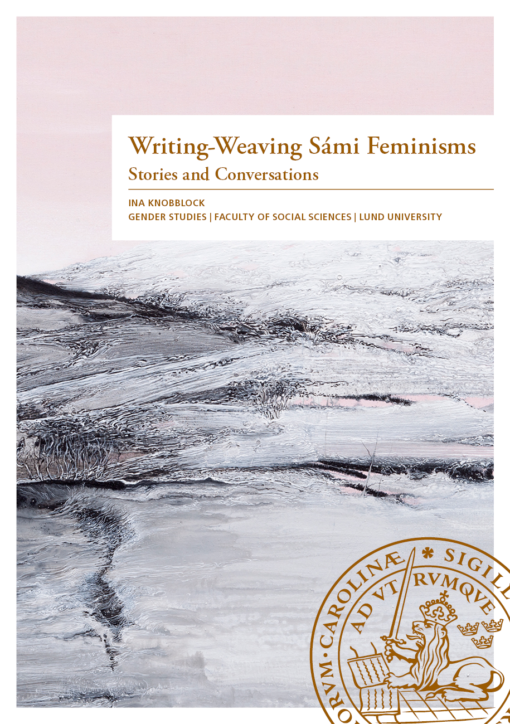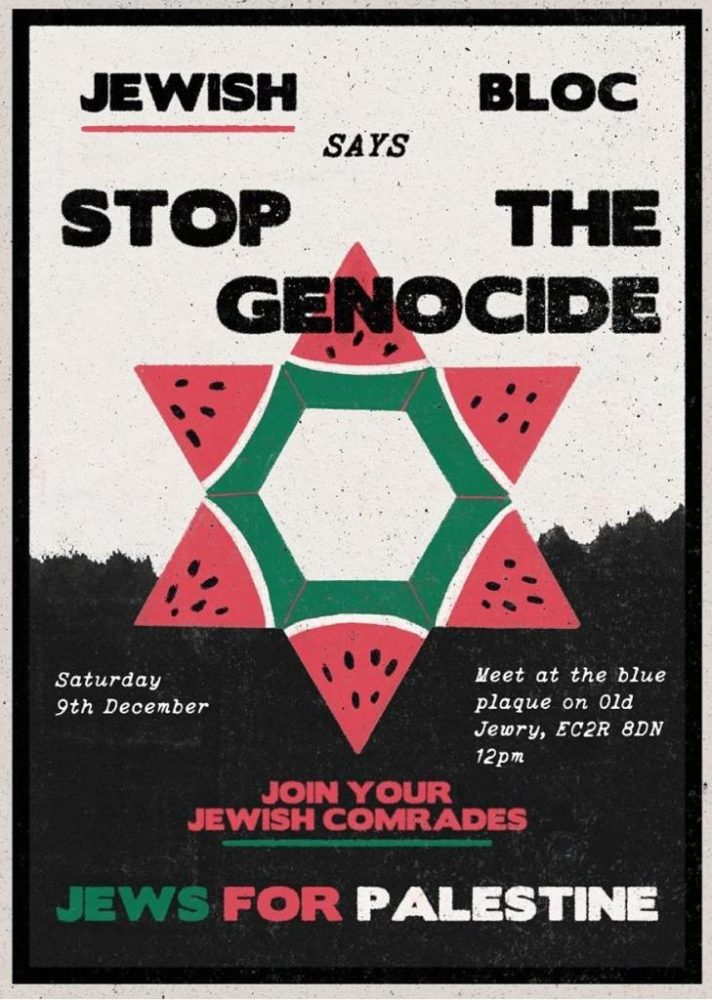
I have just returned from the second instalment of the PEFR conference. I was there to present a paper on left-to-far-right transitions, and to run a zine making workshop with Miranda Iossifidis from Newcastle University. Two colleagues from Media, Samuel Nicholes and Bernhard Forchtner, were also presenting. I already had a telling encounter on the way to the conference when I ran into a market research person, a nice middle aged blonde lady, who turned out to be a fan of racist author Douglas Murray.
Like last time, PEFR (sometimes mistakenly abbreviated as ‘PERF’) took part in a Swedish city – this time in Uppsala. It was nice to trudge through piles of snow and then enter well insulated buildings, which I wish we had in the UK. The conference atmosphere was quite informal and included evening entertainment (there was even a pub quiz that highlighted the absurdity of far-right symbolism around the world!). Attendees came from a variety of backgrounds, including academia, government/policy, journalism and NGOs. Some academics who presented did not actually work on the topic but presented on their activism. In a commitment to environmentalism, many had travelled long distances by train and been delayed by strikes and other issues on the line with some participants experiencing journeys of 20+ hours that normally take half as long. I was also pretty wired from lack of sleep, though mainly due to noisy hotel room neighbours.

Despite the sleep deprivation, I learned a lot during this conference – not just about topics but also about past and present institutional landscapes that deal with the far right and the environment. There were people from the Rosa Luxemburg Foundation who offered free books on related subjects, such as homonationalism or climate change. There was FARN, a German government funded NGO against radicalisation in conservationism. Out of curiosity, I attended one of their workshops. It was about völkisch moments that are heavily present in the region that I’m originally from, and their continuation of historic links between organic farming and esotericism (they also ran a second workshop on methods against radicalisation). I learned that young Germans can now do a voluntary ‘ecological year’ instead of the previous military service or social year. One of the presenters had done such an ecological year and ended up with a problematic organic farming organisation whose ethos turned out to have been built on far right ideology. When checking out their website, I found that they also have student dissertations on the subject for download, which I have to show my undergratuates.
This cross institutional countering of the far right became the subject of a panel, which examined the challenges of researching the far right from different positions such as journalism, academia and government. As someone who grew up with a father who was researching the far right from a police perspective, I was familiar with the hostility that researchers encountered (my family underwent periods of police protection). I was less familiar with the many ‘grey areas’ that people had to negotiate, for example, in policy. How do you block or diffuse the influence of individuals, lobby groups, political parties or even far right governments? What happens to antifascist government foundations when the far right is in power? This was illustrated in other panels as well, from local politicians having to judge far right entries in organic farming competitions to creating ‘Trojan horses’ to sneak left wing ideas into right wing policy.
Over the three days, I picked up on some themes that ran across the sessions I attended. One could be described as a far right image change: a PR move that seeks to contradict the perception of the far right as unfeeling, aggressive perpetrators by showing them as empathic, loving, misunderstood victims. Powerpoint slides were littered with images of far right people (usually young men) with cute animals, plants, rainbow flags. This trend appeared in many different countries, including Germany, the US and South Africa. Gender identity and gender relations were also the focus of a psychoanalytic session which heavily drew on the work of Klaus Theweleit with some insightful expansions. One question that was raised in this context was that of ‘grooming’ of young people by older members of the far right. A paper on the Danish ‘Feuerkrieg Division’ showed that young people, predominately young men, can sometimes end up in far right circles simply through peer pressure, and through boredom and lack of perspective. Here, lockdown emerged as an exacerbating factor. This led to another question: ‘What happens when fascists grow up?’
Another focus was left/far right overlaps. Despite my own focus on left-to-far right transitions, I was surprised at some of the left and decolonial appropriations. One striking example was on the French far right’s appropriation of the ‘pluriverse’, normally a decolonial concept, to argue for their own indigeneity and its protection amongst other indigenous groups (great paper by Swetlana von Hindte). The paper was part of a panel on far right arguments for degrowth, which predictably leaned on anti-globalisation sentiments. This rhetoric also showed in various examples of British environmentalism, from Extinction Rebellion groups (‘Sink the boats, save the world’) to ‘Anglofuturists’. Presenter Ada Barbour illustrated this trend with an alarming number of examples that made environmentalism synonymous with opposition to ‘mass migration’.

The most difficult ‘theme’ for me to experience was the tension between antifascist and antiracist approaches. As Jonathan Olsen stressed in his opening keynote, research on ecologies of the far right is heavily influenced by the discourse on Nazi Germany/post-Nazi Germany. While this focus is slowly shifting to other geographical areas and genealogies, this origin still very much shapes the analytical tools of the field as well as the geographical origin of the majority of participants. As someone who normally presents in the context of the UK antiracist discourse, the difference in attendees as well as the non-comprehension of many postcolonial, decolonial or critical race theory concepts was pretty stark. It was also something that I raised during the conference on multiple occasions, because this tension led to absolute gridlocks, intensified by the Gaza conflict.
It was not the case that postcolonial concepts were absent. A few antifascist researchers of colour were present, including German ones, and the programme also included papers in which colonialism was central. These included papers from the appropriation of anti-racist and decolonial concepts (e.g. ‘post-development’, ‘pluriverse’, Black Lives Matter) to the ‘saffronisation’ of green energy in India. Further, given the many far right claims to indigeneity, it could be assumed that antifascist researchers would have familiarised themselves with literature on the topic, especially by Indigenous researchers. That this is not the case became apparent during the keynote by Ina Knobblock, a Sami feminist scholar. Three times during the Q&A attendees asked her to distance herself from ‘blood and soil’ ideology. It was very evident that this was something that Knobblock was used to being asked, and visibly tired of being asked. The fact that the question was repeated twice was worrying both in its struggle to contextualise European Indigenous ideas and struggle (forced relocations and residential schools also happened in Europe!) and in its lack of familiarity, by an apparently antiracist audience, with the decolonial discourse overall.
The situation got even worse with the ‘Gaza incident’. It began with one attendee trying to force a statement from Knobblock on the settler colonial situation in Palestine, which was promptly countered by a German participant who insisted that ‘Israel is 100% not a settler colonial state’. This second interaction was problematic in two ways: 1) the initial demand essentially hijacked the speaker’s talk, while assuming generic expertise on all Indigenous issues; 2) the response by the German participant was offensive to many in the audience, especially the few Muslims. This hijacking put others into the position of either speaking up move further away from Knobblock’s concern, or entrenching the trauma for those offended by maintaining silence.

What this incident painfully brought to light was not only the need to address the elephant in the room (Palestine/Israel) but also the blindspots of antifascist researchers. By request of several participants, it led to the spontaneous creation of a workshop, which was timetabled for the following afternoon. While I had also called for a space for discussion, I was apprehensive about a conference workshop, given the strong white German presence at the conference. The German government, media and social media commentary continues to be distressing, with many activists siding with the government line, unlike here in the UK. While I empathise with the fact that German responsibility for the Holocaust needs to inform not just government reactions, but academic reactions, the utter disregard for the colonial and also German nationalist history of Israel (referenced towards the end of this video by David Graeber) is shocking. This blindspot even affects critical Jewish/Israeli voices. Another reason for apprehension was the absence of papers on the Israeli ecocide in the occupied territories at the conference. I first put this down to the fact that researchers working on this topic must feel more comfortable in the postcolonial/decolonial/critical race theory context, but it turned out that there was indeed an accepted paper. The speaker was however not granted a visa by the (far right) Swedish government. In the meantime, the speaker had also lost their entire family in the conflict.
This was the situation in which the workshop took place. Around thirty people arrived at the room, so the group was split in two to enable a less busy discussion. There were two facilitated discussions rounds, one which centred on feelings regarding the topic, and one which focused on analysis. In our group, this did not work particularly well, partly because people were critical of the method (why does anyone need to hear more white people’s feelings?) and partly, because one the aforementioned gridlock. Without going too much into the details, the dynamics felt a lot like a microcosm of the geopolitical situation. Being both German and British, with some Jewish family on my dad’s side, I tried to negotiate between positions, but it did not work. This split was noticeable in other conversations on this topic outside of the workshop. It tended to leave many non-German stunned by a position that maintained that Israel could not be anything but uniformly good. Even though there was empathy for the position that moving even an inch from this position would result in the repetition of the Holocaust, it felt like an intellectual and empathetic failure in face of Israel’s long-term record of atrocities. In fact, Palestinians kept being compared to Nazis who launch pogroms on the Israeli population.
Images: Examples of Jewish organisations who are critical of the Israeli government’s actions in Palestine.
What was even more disturbing was the apparent inability to support the pro-Israel opinion through an academic argument – there was mostly repetition of German antifascist mantras, currently also repeated by the German government. As one participant put it: ‘most people in the West disagree with their governments on this – why not Germans?’ Ironically, this happened in the same breath as denouncing criticisms ‘non-academic’. It was rather harrowing to witness the shock of the German activists who genuinely believed that everyone else had gone over to the dark side, while everyone else believed that Germans were in the process of supporting another genocide. Aside from the refusal to discuss Israel’s links with the British colonial project, there was no acknowledgement of the fact that many far right groups in the UK and Germany are waving and posting Israeli flags. In our workshop, British participants explained that the far right do so not because the far right loves Jewish people, but that either want Jewish people to stay in their own country or support their erasure of Muslim lives. Again, this was seen as equating Israeli with the far right. Likewise, there was no acknowledgment of Jewish protestors experiencing German police violence and other forms of censorship. In fact, this was countered by the claim that there are now ‘no go areas’ for Jewish people in Germany since the conflict. The style of arguing felt more like a psychosis, which is understandable given the apparent collapse of the German antifascist model. All your life you have been trained to make sharp boundaries between good and bad, and now all the usual parameters are under siege.
The reality is that they have been contested for a long time by many Germans of colour, including Jewish voices, but things kept being ignored. This ostrich mode is now just taking on a more surreal form. The sad thing is that denying the very obvious genocidal intent of a far right government is not going to help with the antisemitism problem. It gives the impression that any antiracist action for the left is hypocritical and, like the far right, values one group of people over another. There are killable populations and the left and the far right happen to currently agree on who that is. Needless to say, this tactic can make the situation worse for a lot of Jewish people, including Israelis. It also neglects the fact that violence tends to provoke further violence. As gruesome as the attack on the music festival was, and the hostage situation continues to be, the violence did not come from nowhere. Also, what if geopolitical constellations change?

Despite this unsettling experience, I remain hopeful. There were a few young, quiet Germans who just listened and occasionally nodded when decolonial arguments were made (the German genocides in Namibia were mentioned, for example). I was later approached by attendees, including German attendees, to further explain my position. I appreciated the questions and learned a lot through them. One person said they were not quite clear on the difference between, as they termed it, ‘Antifa versus Antira’. In the final panel of the conference, on the future of the PEFR network, I again raised the issue for further discussion, perhaps in the form of a panel session and a reading list, at the next conference. What definitely needs to happen is to make antifascist spaces safer spaces for BIPOC antifascists. The conference showed that white antifascists need to eduate themselves more about the debates in the wider antiracist discourse, to not end up acting like racists themselves. If racialised people get retraumatised at supposedly anti-racist conferences, this will remain a ‘whites only’ space. As one Muslim participant put it: ‘when I walked into the room, I felt like I was at a conference in the 1940s’. I know that many white antifascists see it as their job to take antiracist work off BIPOCs, but this can become a patronising strategy. If we start from the premise that nothing comes from a bad place, I have some hope that some things can improve. The conference was a reminder that a lot of work still needs to be done, not just in relation to far right groups, but within our own community.



